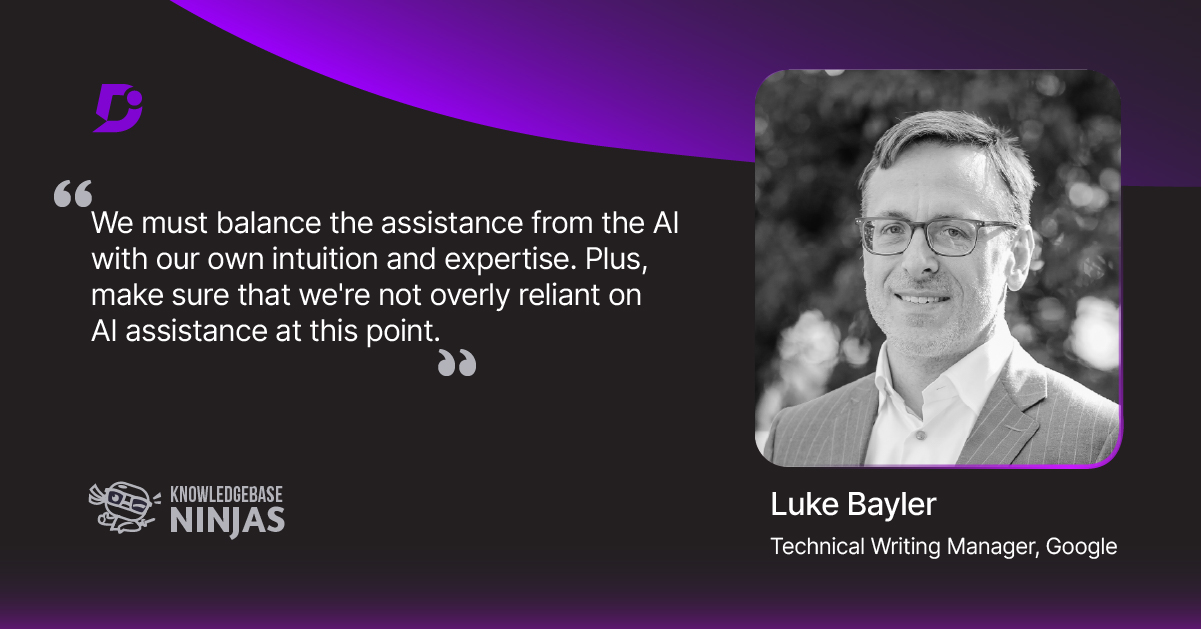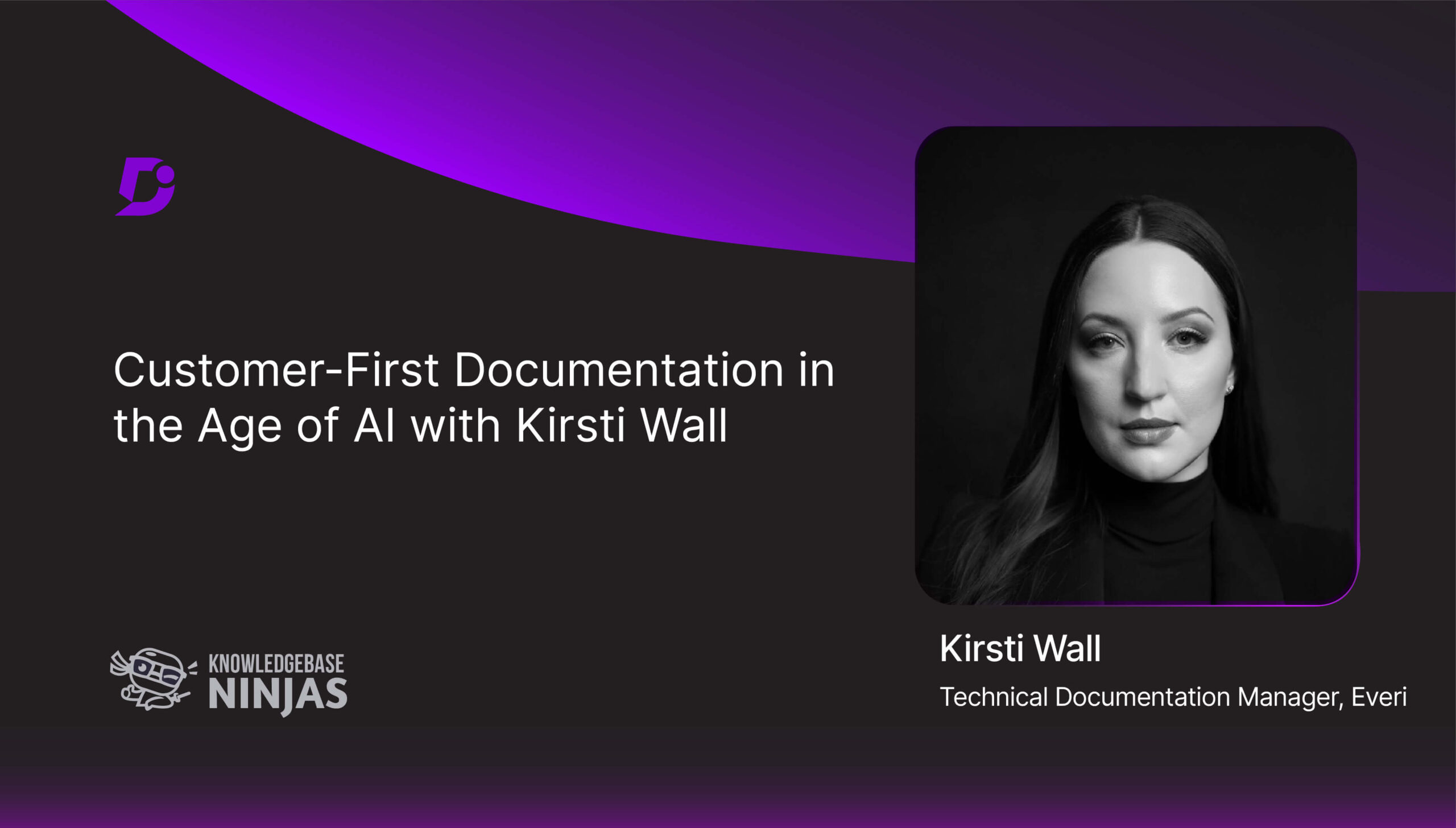Luke Bayler, Technical Writing Manager at Google, joins us to share his journey into technical writing, the skills that shaped his career, and his transition into management. Luke discusses the balance between technical depth and user-friendliness in documentation, the importance of understanding audience needs, and how AI is reshaping the writing process. He also provides insights into structuring documentation effectively, measuring success, and his thoughts about AI and its applications in technical writing.
Watch the full podcast episode video here
About Luke
- Luke’s LinkedIn
- Luke has over two decades of experience in technical documentation. Starting as a technical writer in 2000, Luke has worked across various industries. His journey into tech writing began when he took on an in-house documentation role at a video game company, leading him to discover his passion for technical writing. Now in a leadership role, he focuses on scaling documentation efforts, mentoring writers, and ensuring high-quality content that meets user needs.
Key Takeaways
-
Know Your Audience: A crucial skill in tech writing is always considering who you’re writing for. Understanding your audience’s needs, tasks, and challenges allows you to tailor your content effectively, balancing technical depth and user-friendly language.
-
Clarity Over Technical Depth: While technical depth may be necessary at times, the primary focus should be on helping users achieve their tasks. Providing just enough technical detail that aligns with user needs is key to clear and effective documentation.
-
Structured Documentation Process: A well-structured technical writing process includes planning, scoping, collaborating with subject matter experts, and iterative reviews. Planning the content’s scope and structure ensures clarity and relevance for the user.
-
User Engagement Measures Success: Luke believes the success of documentation is often measured by user feedback. Positive engagement and constructive criticism from users show that the document serves its purpose. “No feedback” could indicate either satisfaction or disengagement.
-
Balance AI assistance with personal intuition: As AI tools become more prevalent in tech writing, it’s essential to balance AI assistance with personal intuition and expertise. Luke advises against being overly reliant on AI suggestions, advocating for thoughtful discernment in content creation.
-
Developing Communication Skills is Vital: Apart from writing, developing strong communication skills both verbal and written greatly benefits tech writers. The ability to clearly explain technical concepts to both technical and non-technical audiences is a critical asset.
Rapid Fire
-
What are some valuable resources you would recommend to the viewers?
On Writing: A Memoir of the Craft book by Stephen King
I’d Rather Be Writing blog by Tom Johnson’s - One word that comes to mind when you hear “documentation”?
Questions -
A piece of advice you would give your 20-year-old self?
Read things that you wouldn’t normally read, expose yourself to different writing types.
You can listen to the full episode on Apple, Spotify and YouTube.





 –
– 

